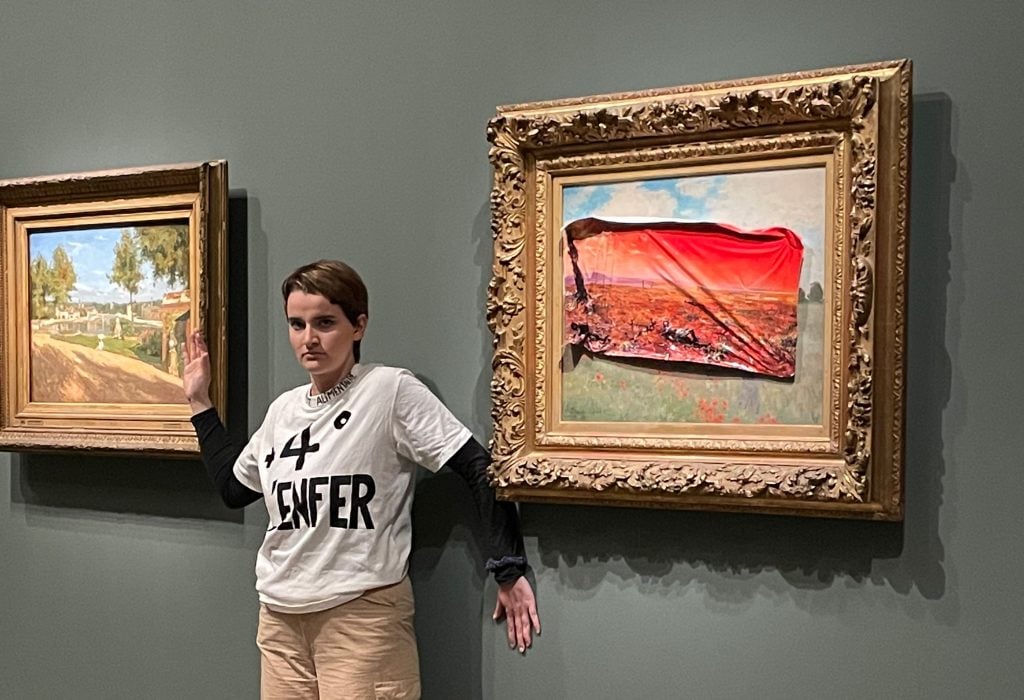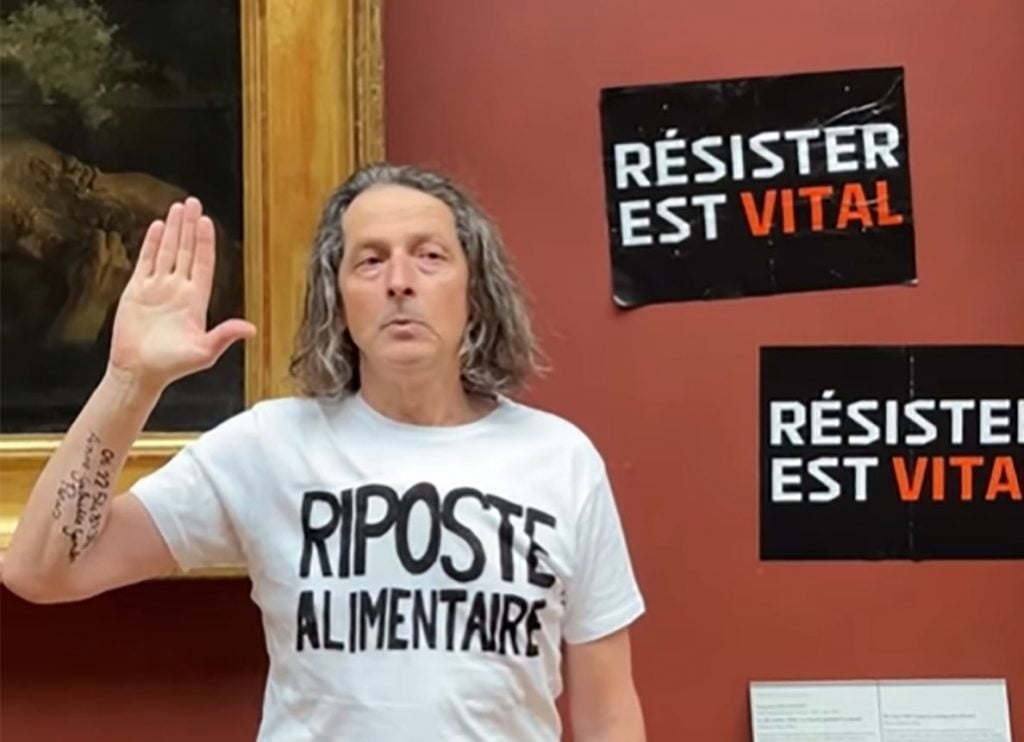Museums & Institutions
Protestor Arrested After Postering Over a Monet at the Musée d’Orsay
France's culture minister Rachida Dati has promised to crack down on this highly controversial means of protest.

France's culture minister Rachida Dati has promised to crack down on this highly controversial means of protest.

Jo Lawson-Tancred

A climate activist for the group Riposte Alimentaire (Food Counterattack) has been arrested after gluing a poster onto a masterpiece by Monet at the Musée d’Orsay in Paris on Saturday. This protest is the latest in a slew of actions claimed by Riposte Alimentaire that took place at high-profile cultural institutions designed to call attention to the climate crisis.
“This destruction of art by delinquents cannot be justified in any way,” declared France’s culture minister Rachida Dati on X (formerly Twitter). “It must stop!” She added that she is in touch with the minister of justice to work towards implementing a new penal policy to punish these acts of protest, which often cause no long term harm so evade prosecution for the damage of cultural property.
The museum confirmed that the painting has been inspected by a restoration expert who reported no permanent damage. It is now back on display.
The painting Coquelicots (Poppy Field) (1873) is a charmingly picturesque view of a woman and child strolling through a field filled with bright red poppies. It was painted near Argenteuil, a small town northwest of Paris where Monet settled in 1871, and is currently part of the “Paris 1874: Inventing Impressionism” exhibition at the Musée d’Orsay (through July 14th, 2024).
As seen in a video of the attack posted by Riposte Alimentaire, the protestor stuck a poster over the top of the painting that showed a comparatively dystopian vision of the world as it might look in 2073, or even 2173, if urgent action isn’t take to curb greenhouse gas emissions. The details of this scene are hard to make out but there appear to be no poppies in its barren landscape. Instead, it is the sky that is flushed with tones of fiery red.
The activist wore a white t-shirt with the words “+4°[C] L’Enfer” (“+4°[C] Hell”) handwritten in black pen. After affixing the poster over the protective glass covering the canvas, she glued her hand to the wall just below the picture frame and began to address visitors milling around the gallery, who remained quiet and did not attempt to intervene.
“This nightmarish image awaits us if no alternative is put in place,” she declared. “At four more degrees, hell awaits us,” referring to the serious consequences of global temperatures potentially rising to 4° Celcius (7° Fahrenheit) above pre-industrial levels.
According to reports by French news agency AFP, the museum plans to file a criminal complaint. It did not respond to a request for further comment by publishing time.
“This is what Claude Monet would probably have painted in 2100 if no radical measures are taken to stop climate change by then,” Riposte Alimentaire wrote on X. “As a reminder, this IPCC scenario is not the most pessimistic, since a trajectory of more than +4°C is projected.”

A screenshot of a video shared by Riposte Alimentaire of a protest action at the Louvre Museum in France on May 8, 2024. Photo courtesy of Riposte Alimentaire
It drew attention to the role of “productivist and ecocidal agriculture” in contributing 21 percent of France’s greenhouse gas emissions. It called for substantial reform, opposing the new Agricultural Orientation Law, which is currently under discussion in French parliament. Last month it was reported that only some of its targets, like keeping 15 percent of farmland for organic agriculture, had been scrapped.
Just last month, two activists were arrested for scattering bags of orange powder over the floors of the Hall of Mirrors at the Palace of Versailles, outside Paris. Just days later, the group targeted one of France’s most prized paintings, Delacroix’s Liberty Leading the People at the Louvre. It has just been rehung following a major six-month restoration.
In February, two protestors flung soup at Monet’s Spring (1872) at the Musée des Beaux-Art in Lyon, and the month before that they hurled pumpkin soup at the Mona Lisa at the Louvre.